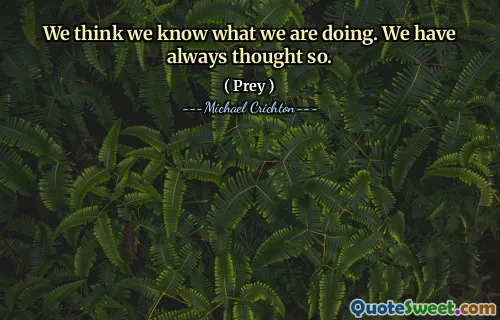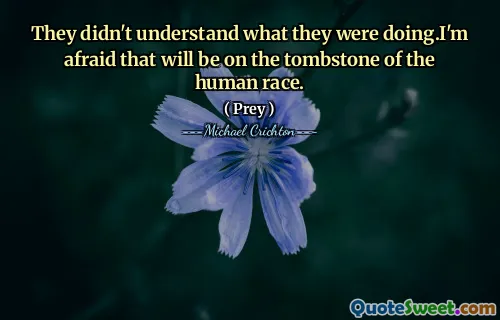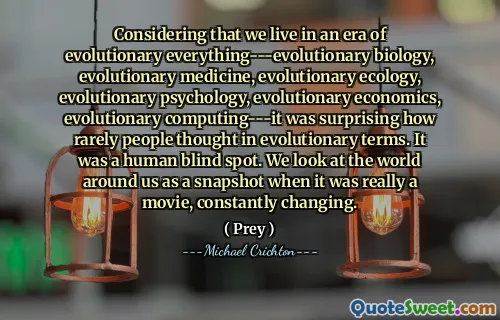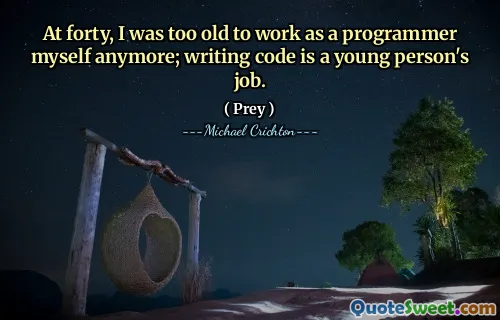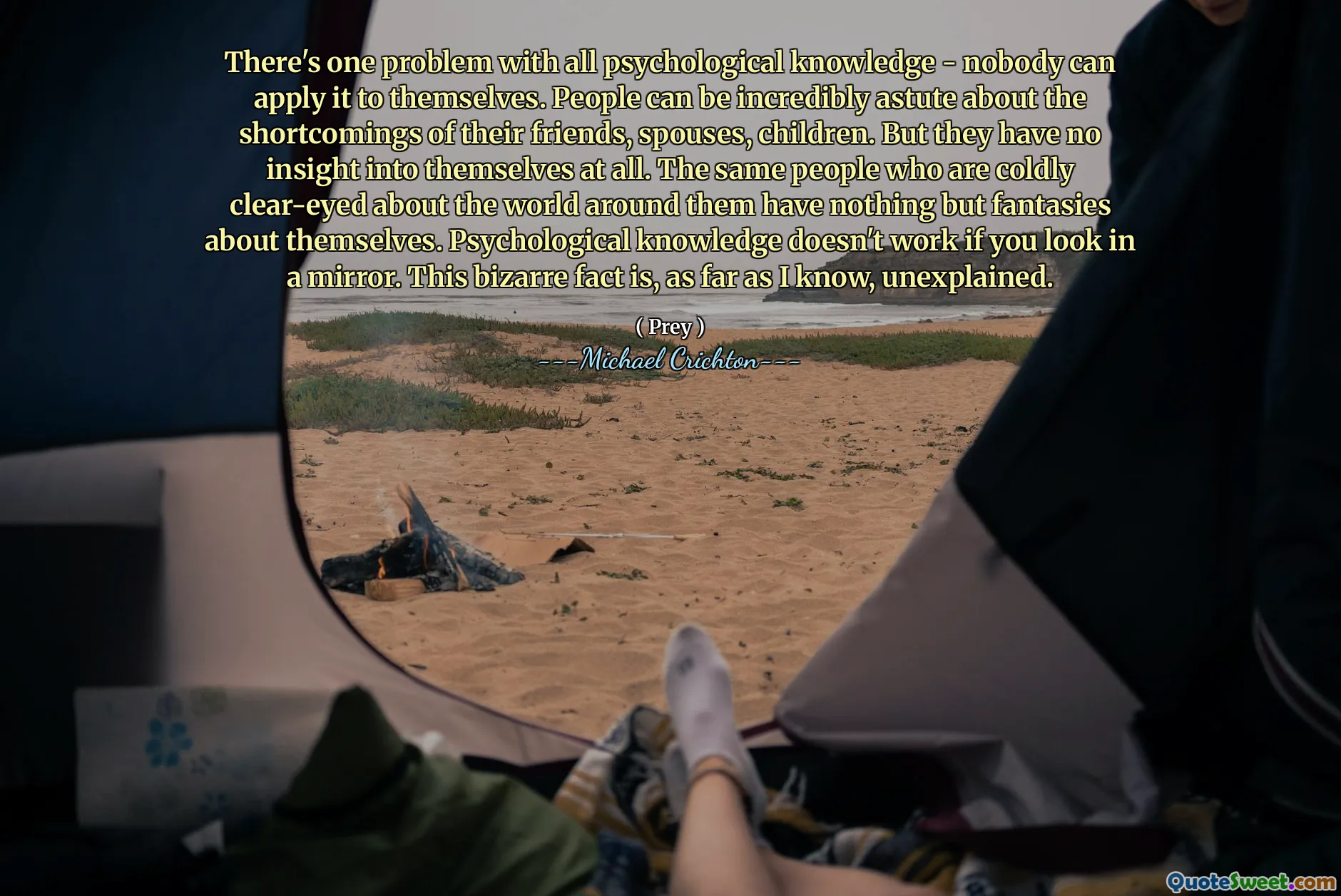
There's one problem with all psychological knowledge - nobody can apply it to themselves. People can be incredibly astute about the shortcomings of their friends, spouses, children. But they have no insight into themselves at all. The same people who are coldly clear-eyed about the world around them have nothing but fantasies about themselves. Psychological knowledge doesn't work if you look in a mirror. This bizarre fact is, as far as I know, unexplained.
In "Prey" by Michael Crichton, the author explores a paradox within psychological understanding: people can often analyze others' behaviors and flaws with great clarity yet struggle to accurately assess their own. This disparity highlights an inherent limitation in applying psychological knowledge to oneself, leading to a lack of self-awareness despite keen observations of the surrounding world. Individuals seem to hold distorted perceptions about themselves, creating fantasies rather than a truthful self-image.
This phenomenon raises intriguing questions about the nature of self-reflection and insight. Crichton points out that the same individuals who can articulate the shortcomings of loved ones find themselves blinded to their own issues. This intriguing contradiction remains largely unexplained, posing a fascinating challenge for the field of psychology and our understanding of self-perception.
